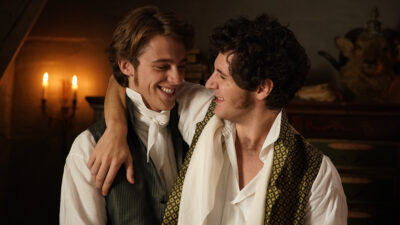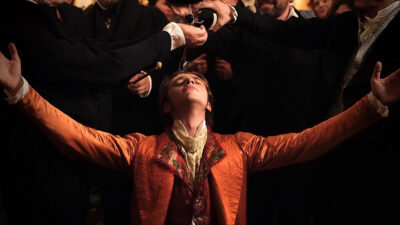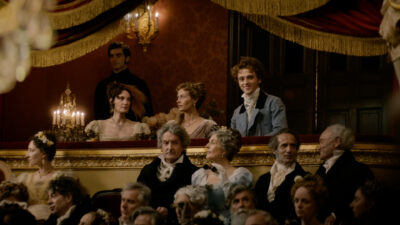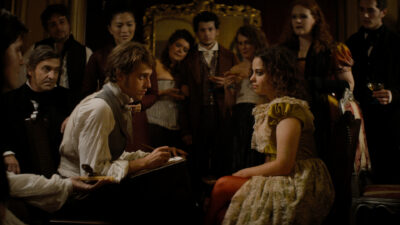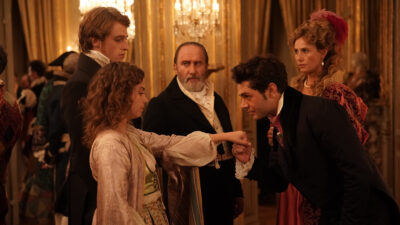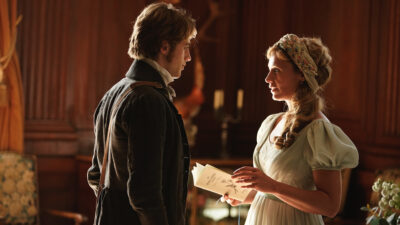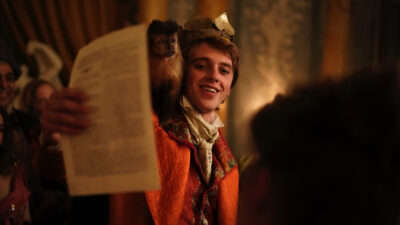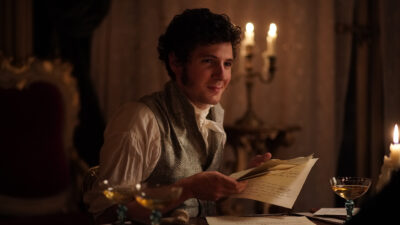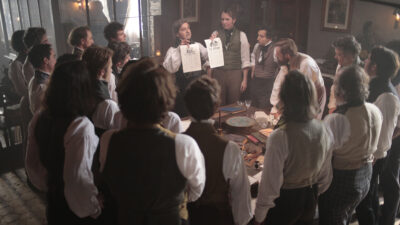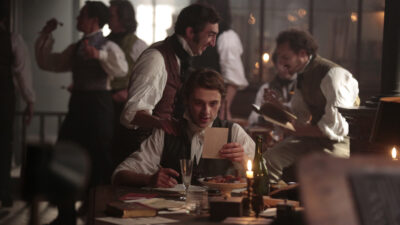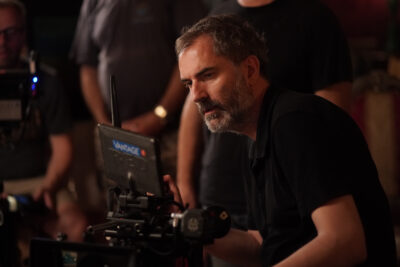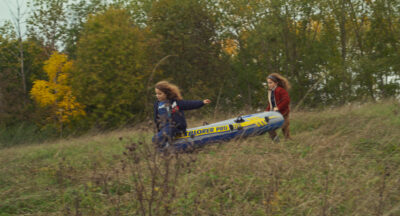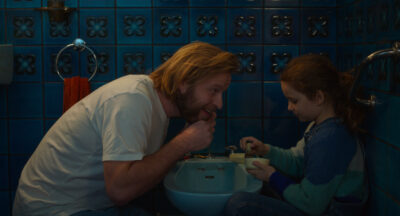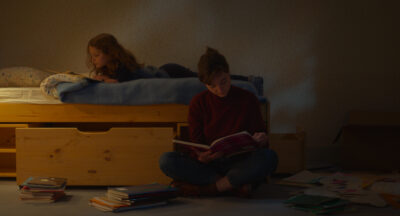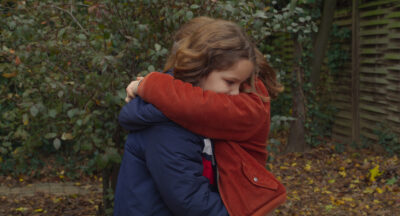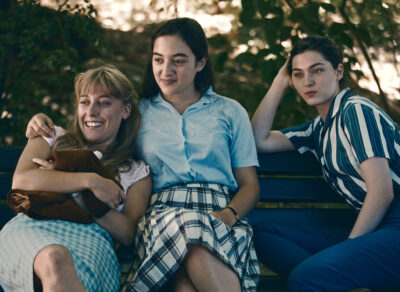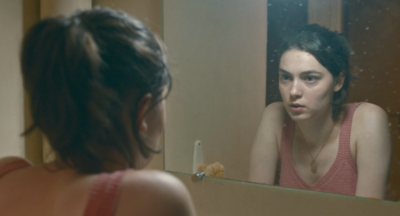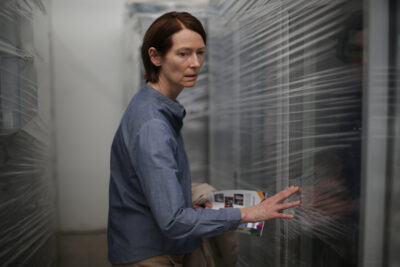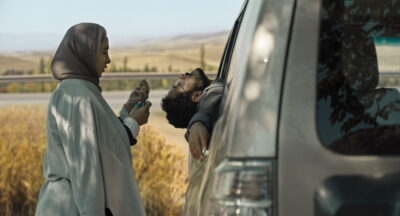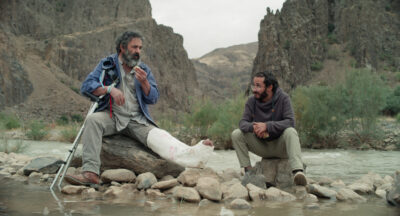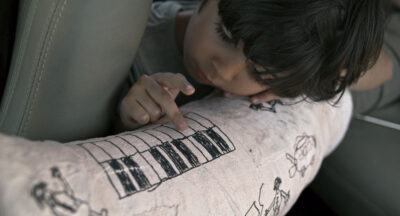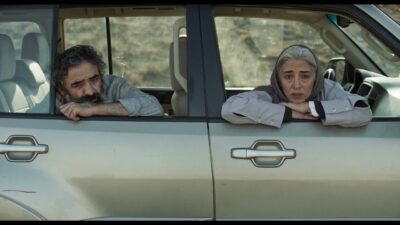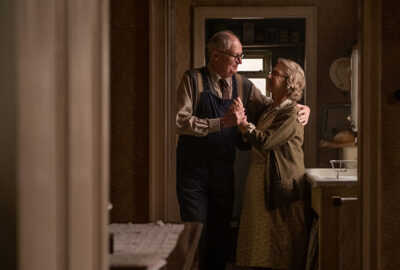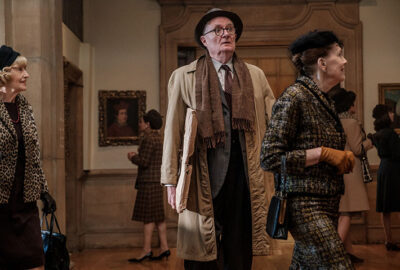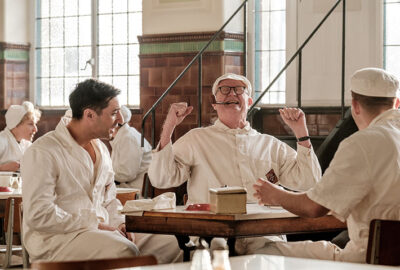An official selection at Cannes’ Directors Fortnight, the Toronto International Film Festival, the New York Film Festival, BFI London, and the Sundance Film Festival, sci-fi punk musical NEPTUNE FROST opens June 10 at the Monica Film Center and NoHo 7. Multi-hyphenate, multidisciplinary artist Saul Williams brings his unique dynamism to this Afrofuturist vision, a visually wondrous amalgamation of themes, ideas, and songs that Williams has explored in his work, notably his 2016 album MartyrLoserKing. Co-directed with the Rwandan-born artist and cinematographer Anisia Uzeyman, the film takes place in the hilltops of Burundi, where a group of escaped coltan miners form an anti-colonialist computer hacker collective.
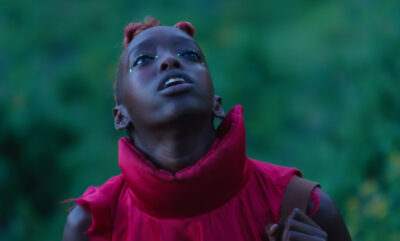
From their camp in an otherworldly e-waste dump, they attempt a takeover of the authoritarian regime exploiting the region’s natural resources – and its people. When an intersex runaway and an escaped coltan miner find each other through cosmic forces, their connection sparks glitches within the greater divine circuitry. Set between states of being – past and present, dream and waking life, colonized and free, male and female, memory and prescience – NEPTUNE FROST is an invigorating and empowering direct download to the cerebral cortex and a call to reclaim technology for progressive political ends.

“Dizzyingly inventive… [Displays] fierce originality and punk iconoclasm.” —Wendy Ide, Screen Daily
“Groundbreaking… utterly unprecedented.” —Michael Sicinski, Mubi Notebook
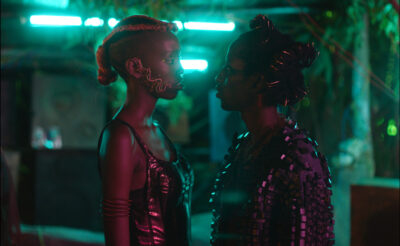
“Brimming with ideas… [Williams’] ambition is palpable.” —Tambay Obenson, Indiewire
“Visionary.” —Valerie Complex, Deadline

“A future cult classic in the making.” —Dustin Chang, Screen Anarchy
“A sensory delight… makes the looks on “Euphoria” seem conventional.” —Jude Dry, Indiewire

“A work of cinema that makes all other contemporary films seem quaint. Groundbreaking… utterly unprecedented.” – MUBI Notebook
“An exciting musical. Its ideas are playful as well as passionate. A polyrhythmic experience, aligned to Black film storytelling traditions.” – The Playlist
“A gorgeous, unclassifiable hacker love story set against the backdrop of a dreamlike Rwanda, it conjures a mythical sense of postmodern identity in poetic sci-fi terms that would make Octavia Butler proud.” – IndieWire

